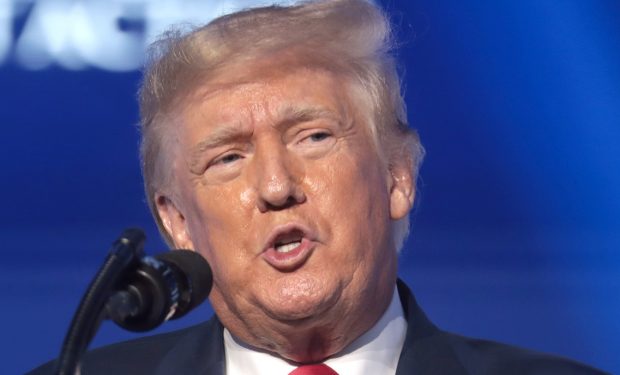Florida District Court Judge Aileen Cannon in July shut down Special Counsel Jack Smith‘s prosecution of former President Donald Trump over his post-presidency retention of classified documents at his private residence at Mar-a Lago.
The controversial decision to dismiss the case — the Washington Post called it “stunning” — meant Cannon had “sidestepped key legal rulings” as the Post reported, putting her decision on “shaky ground.”
Cannon concluded that Smith did not have authority to bring the case against Trump, and that his appointment and the funding that supported the prosecution was unconstitutional.
Smith is now appealing that decision to the 11th Circuit court. The basic argument of the appeal is what former U.S. Attorney Joyce Vance succinctly characterized this way: “The government’s position is that [Cannon] got it badly wrong.”
Here's what Jack Smith is arguing in the 11th Circuit https://t.co/W3lEa5A559 pic.twitter.com/C12sqK853T
— Joyce Alene (@JoyceWhiteVance) August 26, 2024
The government’s appeal goes directly at Cannon’s alleged “sidestep” of “key legal rulings” and cites the Supreme Court’s 1974 ruling in United States v. Nixon to justify AG Merrick Garland’s appointment of Smith and the operation’s funding, concluding that “statutory text, context, and history confirm that Nixon was correct.”
The table of contents from the brief makes its priorities clear. First it asserts that “The Attorney General Possessed the Statutory Authority to Appoint the Special Counsel” before further asserting that the SCOTUS decision in United States v. Nixon “establishes the Attorney General’s Appointment Authority.”
The government says the SCOTUS’s 50-year-old Nixon decision “vested” the Attorney General with “the power to appoint subordinate officers” — a precedent Cannon failed to abide in her dismissal.
The brief further supports this tenet though its presentation of a long history of special counsel appointments, the protocol dating back 150 years, even citing a paper addressing the subject authored by future Supreme Court Justice Brett Kavanaugh.
“The only question presented here is whether Congress has vested the Attorney General, by law with the power to make the appointment,” Smith’s appeal asserts, following that with: “The Supreme Court squarely answered that question in United States v. Nixon, 418 U.S. 683, 694 (1974), holding that the Attorney General has statutory authority under 28 U.S.C. §§ 509, 510, 515, and 533 to appoint a special prosecutor comparable to the Special Counsel. Id. at 694-95. Statutory text, context, and history confirm that Nixon was correct.”
